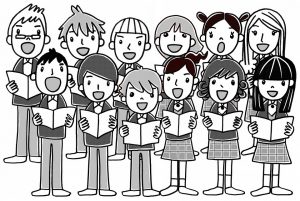
History
Throughout time, children`s songs and rhymes have been transferred from generation to generation. All cultures have invented different rhymes and songs for their children. However, they do not seem to have a jolly origin. There are very theories about their meanings. Some of them are:
“Baa Baa Black Sheep”, this song is about the wool tax imposed in the 13th Century by King Edward I. Although, there is another theory that, stated this could about slavery, there is no evidence about this.
“Ring a Ring o Roses” could be about the great plague of London in 1665. “A pocket full of posies” protect them from the plague, so they carry it with them. “Atishoo, Atishoo” refers to coughing and sneezing. “Ashes, Ashes” the victims of the plagues were cremated. And finally, the death, “We all fall down”.
“The Grand duke of York” may be referred to the king of France.
“The London Bridge is falling down”, may refer to children`s burial on the foundations of the bridge.
“Mary, Mary quite contrary”, could be about Queen Mary I, known as “Bloody Mary”. She used to kill Protestants and it`s said she buried them in the garden.
“Jack and Jill” may be referred to the French Revolution.
Regardless of its origin, these songs and rhymes are good for your children`s brain. Their suppose background should not get in the way. Songs like “The Itsy-bitsy Spider” and “Daddy finger“, gives your child the ability to relate words with actions. They also give your child joy and an old tradition.
Benefits
Every child loves making different sounds and to play with them. Almost all children seem to possess qualities that allow them to imitate the sounds and words they hear. Learning rhymes and songs allows them to learn the language in an unconscious and effortless manner.
Children between ages 0-5 are on a stage of exploring and learning through games. By singing songs and nursery rhymes will improve, your kid`s reading, spelling and literacy skills. They also provide a warm bond between parent and child.
Children`s songs and rhymes can be used in any place and time to change the mood of your kid. A boring time can turn on a fun moment. They enhance the intellectual, hearing, sensorial, speech, motor ability and social development of the child. Memorizing songs and rhymes provides a better retention and concentration capacity. Their corporal expression improves if you accompany these songs and rhymes with a choreography (like doing gestures with your hands and arms), it develops it`s psychomotor, coordination and gestural expression.
The music provides sensibility and it helps the children get closer to others, making socialization easier.
Singing with your child can develop listening and speaking skills too. Get them involved in the song and rhyme by asking them questions or making them repeat a word. For example, “The cow says moo, can you say moo?”. Making them draw about the song or the rhyme is a good practice. This way they develop motor skills for writing with pencils or pens.